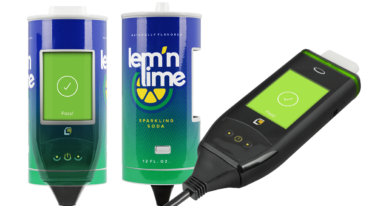
If you area found guilty of driving intoxicated, there is a strong likelihood that you will be mandated by the court to purchase, install, and maintain a car breathalyzer in your vehicle. While this covers your personal vehicle, you might be left wondering whether this applies to work vehicles you may have to operate for travel or work-related purposes.
To handle this issue, a variety of states have allowed for employer ignition interlock device exemptions. In these cases, a client can apply for an exemption that will enable them to drive their employer’s vehicle. Below, we will discuss how you can apply for this exemption and what it entails.
Work Place Requirements
If you want to operate your employer’s vehicle, that automobile or piece of machinery must be:
- Owned or leased by the employer.
- Maintained by the employer.
- Used for work-related reasons.
Such vehicles cannot be used for personal reasons. Further, the operation of this vehicle will typically be constrained to a limited number of:
- Hours driven
- Days driven per week
- Locations suitable for driving
Applying for an Interlock Device Exemption
If you wish to apply, you will have to confirm that your state allows an exemption. Once you have established that, you can submit an exemption form. You will have to list:
- Driver’s License Number
- Date of Birth
- State License was issued in
- First, Middle, and Last Name
- Address
- Phone number
- Email address
You will then have to note your occupation, job duties, and why you need an exemption in order to continue working. Once you have detailed your work reasons, you will have to acknowledge the following information:
- You will still be required to install an interlock device on your personal vehicle
- You are not self-employed
- You do not own or partially own the business
- The exemption is only legal for business purposes and not personal use
- You will notify the DMV within 15 days of an employment change
- This exemption only lasts one year; after you must reapply
This certification carries the penalty of perjury under U.S. code 1621, section 2, which states:
“Whoever, in any declaration, certificate, verification, or statement under penalty of perjury as permitted under section 1746 of title 28, United States Code, willfully subscribes as true any material matter which he does not believe to be true; is guilty of perjury and shall, except as otherwise expressly provided by law, be fined under this title or imprisoned not more than five years, or both. This section is applicable whether the statement or subscription is made within or without the United States.”
While perjury laws can vary from state to state, for most of them, it is a felony and carries a possible prison sentence of up to five years, fines, and/or probation. In all likelihood, a violation would also affect your driving status and extend the length you were required to keep an interlock device.
If you are approved, you must keep the notice in your employer’s vehicle while driving.
Notifying Your Employer
If granted an employer ignition interlock device exemption, you are legally required to notify your employer of the fact. For liability purposes, they have to know that you need an ignition interlock device to operate a vehicle. So, you are required to provide the exemption notice to any employer who owns the vehicle you use for business employment purposes.
The notice states: “If a person is required to operate a motor vehicle in the course and scope of his or her employment and if the vehicle is owned by the employer, the person may operate that vehicle without installation of an approved ignition interlock device if the employer has been notified by the employee that the employee’s driving privileges have been restricted… and if the person has proof of that notification in his or her possession, or if the notice, or facsimile copy thereof, is with the vehicle.”
States Where You Can Apply for an Employer Exemption
Today, 21 states allow for an employer ignition interlock device exemption. Although their exemption form and requirements may vary slightly, the gist of the information remains the same. States with exemptions include:
- Alaska
- Arkansas
- California
- Hawaii
- Illinois
- Kansas
- Kentucky
- Louisiana
- Maryland
- Michigan
- Minnesota
- Mississippi
- New York
- Oklahoma
- Oregon
- South Carolina
- Texas
- Utah
- Virginia
- Washington
- Wyoming
LowCost Interlock
If you have any further questions about an employer exemption or want to learn more about Low Cost Interlock’s IC-777 device, LCI has 24/7 bilingual customer support ready and willing to help you with whatever you need. Purchasing and installing an interlock device does not have to be a hassle. Contact us now, and get your ignition interlock installation scheduled today!


